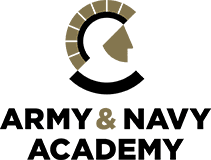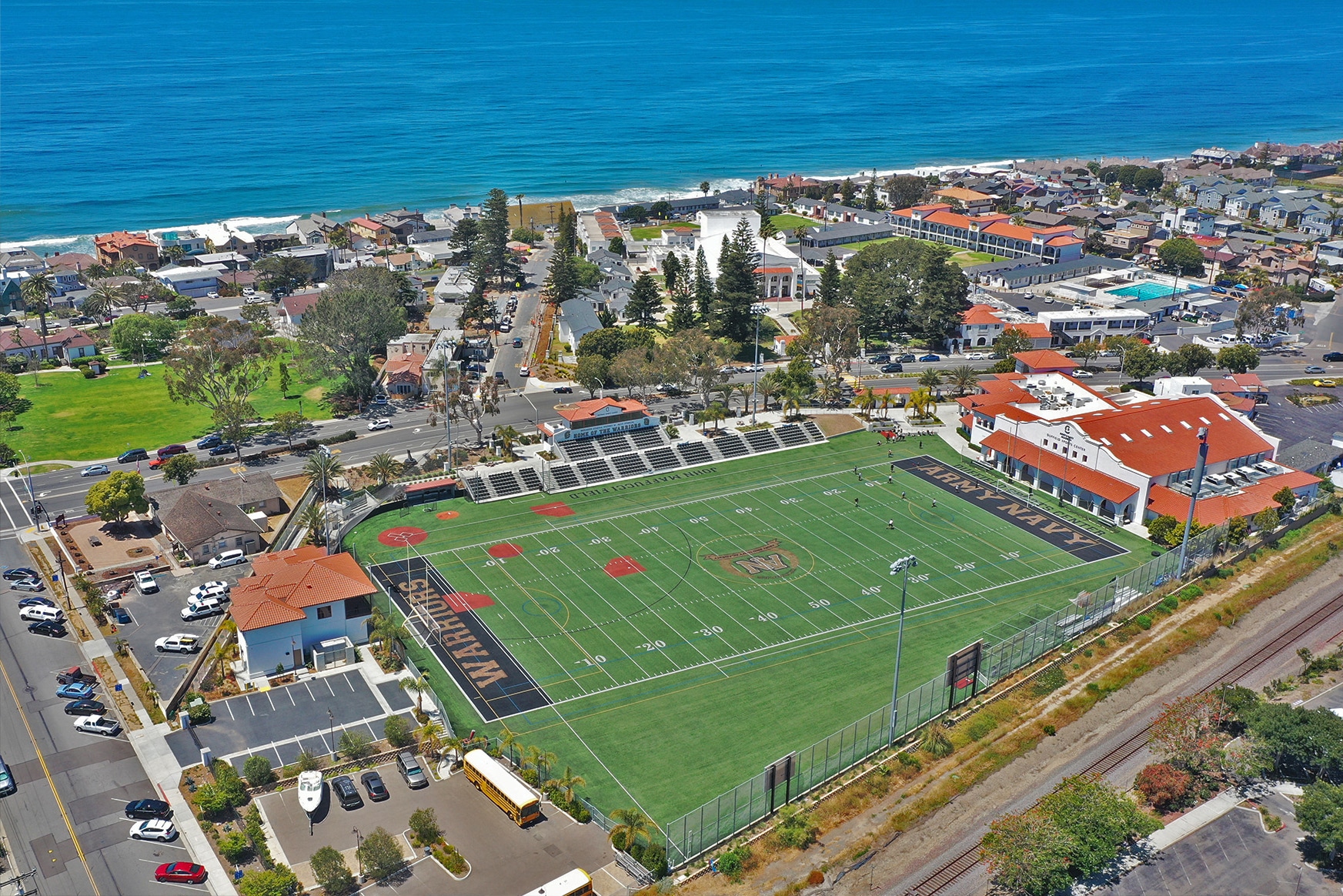
Boarding school vs day school? If you are considering a private school change for your teen, it is important to understand the benefits of boarding schools and day schools. Compare boarding schools to day schools to determine the best secondary school match.
What’s a boarding school? A boarding school offers a 24/7 educational experience, a real advantage for many middle and high school teenagers. Boarding and day schools or combination day/boarding schools typically have access to facilities that typically include: classes, labs, library, enrichment centers, counseling, and athletic facilities.
Unlike some private schools (nonresidential), a boarding school is typically more expansive and is similar to a college setting. While you compare boarding schools, check out their dorms and other amenities, including: health center, dining hall, transportation office, counseling center, full athletic facilities, makespace, and administrative offices. Also, look at the actual location based on your preferences: airport access, cultural opportunities, beach or nature access, safety, and other considerations .
What’s a private day school? A private school (aka “private day school”) offers students classes, athletics and extracurricular activities, but students do not live on campus. Keep in mind that boarding schools are also considered private schools, but they offer the advantage of a residential life experience. Most offer both a day or a boarding option, so local families have a choice.
Day School vs. Boarding School: Which One is Best?
To determine the best fit for your teenager’s education, here are some commonly asked questions about boarding school vs day school.
Why is boarding school better than day? It all depends on the child, but a boarding school can be ideal for a student ready to gain more confidence, independence, and resilience. Statistics also point to more engagement in learning, grade improvement, lifelong friendships, and better college and career opportunities.
How to compare boarding schools? There are a number of websites to help families compare boarding schools. Sites include: Niche, Great Schools, Boarding School Review, Private School Review, AMCSUS (military schools), and regional sites like the Western Boarding School Association.
Do some boarding schools offer a day option for local students? Yes, many boarding schools do offer the option to attend during the day, without residing on campus. Many boarding schools offer both day and boarding options, including top west coast boarding schools and military academies, including: Army and Navy Academy, Webb, Thacher, Cate, Harker, and Stevenson. While some boarding schools are near urban centers, some are in more remote locations.
Are some schools predominantly day schools? There are some boarding schools that are actually more like private day schools. They have a very small number of students living on campus and residential facilities could be more limited. Some private day schools host students off-campus through student homestay programs, including Fairmont in Anaheim and Southwestern Academy in San Marino, but this is a different experience than living on a boarding school campus. These students live with host families or in facilities off-campus.
Is there a big cost difference? There is a tuition cost difference for boarding school vs day school, but keep in mind the cost of food, housing, transportation, clothes and other costs you would incur if your child lived at home. Consider all of the advantages and compare costs before you decide on the final direction.
Do students get to see their families while attending a boarding school? Students at boarding schools typically have the option to go home on weekends, holidays, and summer.
International students from places like China, Taiwan, Japan, Malaysia, Russia, Ukraine, Mexico, Canada, Rwanda, Dominican Republic, and other other countries obviously cannot fly home for the weekend. They are required to go home during holidays and during the summer (or stay with their local contact). When considering a day school vs boarding school, think about your teenager’s readiness to live away from home during the week or for extended periods of time.
Are both kinds of schools welcoming to international students? All private schools generally welcome students from abroad, but boarding schools, in particular, are ideally equipped to support these students through dormitories, cultural immersion activities, multicultural events, counseling support, college planning services and specialized programs like ESL or ESOL (English for Speakers of Other Languages).
There are also situations where U.S. citizens are living in another country for work purposes, such as: diplomatic families, government officials, and corporate executives. These students sometimes choose to remain stateside while their parents relocate to another country. Boarding schools are an ideal solution and offer a number of advantages for these families if this is the case.
Do boarding schools take care of transportation? For working parents, this is a real advantage to a boarding school vs day school. Rather than spend time shuttling your teen to sports and activities, life can center around quality time with your family. Boarding schools transport students to various places including: weekend activities, theme parks, educational excursions, medical/dental appointments, athletic games and meets, and even arrange trips abroad.
Is there a difference in diversity at boarding vs day schools? Private day schools tend to attract students from the local area, typically within a 30 mile radius of the school location. However, boarding schools appeal and attract students from all over the U.S. and the world. At U.S. boarding schools, it is quite common to find students from every continent (except perhaps Antarctica!).
As you compare boarding schools, ask about whether they enroll a wide diversity of students from the U.S. and other countries. Some boarding school students travel from the east coast to attend a west coast boarding school and vice versa.
To give you a better idea of the states where students come from at boarding schools in California, it is fairly common to find students from within the state of California, but also from Oregon, Washington, Montana, Wyoming, Colorado, Arizona, Nevada, and Texas. However, you will also find students from states as far away as Illinois, New York, New Jersey, Connecticut, and Florida.
When comparing boarding schools, students should ultimately attend the boarding school that is the best fit. This could mean leaving your state or regional area or even your home country. Compare boarding schools carefully and weigh the pros and cons.
If you are an international student, ask about the countries where students come from and the percentage of international students. While some boarding schools are in the 10-30% range, some are as high as 50% international.
Where are you more likely to develop lifelong friendships? Friendships can be formed at any kind of school, public, private, or boarding school. However, given the 24/7 experience at boarding schools, students often form lifelong bonds. Boarding school students go to classes, play sports, join clubs, go on trips, and spend time together on the weekends.
Does a boarding school improve family dynamics? Living away from home can sometimes ease pressures at home. If a parent is getting divorced, going through a separation, or there is a death in the family, a boarding school vs day school can lower the stress for the teen.
Providing some distance from daily stress allows parents to work things out. It also provides the teen with an umbrella of support, mentorship, and specific policies outside the family dynamics. As teens mature, sometimes there is friction; going away to school tends to cultivate more appreciation and understanding within families.
What is the daily schedule like at boarding school? The day typically consists of the following: academic classes, tutorial period, athletics, rest and relaxation, study time, dorm meetings, and meals. Boarding school students learn to set goals, manage their time, and develop self-discipline and motivation. Day students, by comparison, typically leave after classes or sports end for the day and only eat lunch on campus.
Are private boarding schools similar to college campuses? Boarding schools tend to be fully equipped campuses, similar to college campus settings. They are also sometimes located near a city, village center or have access to the ocean, lakes, mountains, or deserts.
Amenities and facilities may include: recreation halls, student enrichment centers, a makerspace, and outdoor access areas for students. Some boarding schools are even on oceanfront properties, where students can surf, bodyboard, and enjoy the beach.
Does a boarding school help if parents move frequently? For any family relocating frequently, a boarding school offers stability, consistency, mentorship, counseling, strong friendships, and a chance to acquire independence and confidence before attending college.
Do boarding schools help students gain admission to top colleges? Private college prep schools, in general, offer students a chance to be competitive for college admission. However, boarding schools tend to shine in terms of college matriculation.
College prep boarding schools have advantages, including: on-site testing, mandatory study time, academic support services, college counseling and other related programs to help students gain entrance to prestigious colleges and universities.. It is wise to check out boarding schools vs day schools by comparing college matriculation data on each boarding school website.
Is there a difference in faculty engagement and support? All private schools pride themselves on strong faculty support. For private day schools, the support ends after the school day ends, but at boarding schools, students benefit from after-school tutorials, faculty office hours in the evening, peer or outside tutoring and mandatory study periods.
Faculty at boarding schools also have the special opportunity to know students outside the classroom as many volunteer to lead, coach, or chaperone co-curricular activities such as: sports, clubs, field trips, dances, trips abroad and other activities.
Do students study more at boarding schools vs day schools? Boarding schools follow a daily schedule and this includes study time. At military boarding schools for instance, the schedule is quite rigorous and mandatory study time is integral to the schedule. Data from various associations, including The Association of Boarding Schools and the Enrollment Management Association seems to suggest some marked differences in study habits, college matriculation, graduate degrees, and career compensation.
Are college counselors at both types of schools? College counseling services are offered at both private day and boarding schools. The advantage at a boarding school is the level of access to college planning workshops, college campus tours, test prep, on-site testing, individualized support, and other services offered by counseling and other departments.
Why does someone choose to attend a boarding school? Students attend boarding schools for many reasons. U.S. students might choose to attend a boarding school to improve grades, gain social skills, get ready for college, become a stand out in a sport for athletic scholarships, or for social/emotional growth.
In addition, more families, both domestic and international, are choosing boarding schools for life and college readiness. Boarding school students gain confidence, independence, and resilience as a result of attending.
International students also attend boarding schools to improve English skills and to gain admission to a U.S. college or university.
What types of private day and boarding schools are out there? Private schools, whether they are day and/or boarding schools can be single-gender (all-boys or all-girls) or coeducational, denominational or nondenominational, military boarding schools, or focused on an area of specialization.
Some boarding schools offer Learning Strategies for students with learning differences and ESL/ESOL classes for international students.
Boarding schools can begin as early as 4th grade, but most boarding schools are for middle and high school. In general, boarding schools are college preparatory, but some military boarding schools also offer an edge to gain acceptance to the highly selective service academies (USNA-Annapolis, USMA-West Point, USCGA, USAFA, USMMA).
Some boarding schools also offer career development opportunities through clubs, electives, and internships. An all-boys school in California offers dynamic electives such as: marine drone and aquaculture, aviation, cyber security, computer science, and video production.
Who are some famous people who have attended boarding schools? Politicians include: George W. Bush (Phillips Academy Andover), John F. Kennedy (Choate School), Ted Kennedy (Milton Academy), and John McCain (Episcopal High School). On the creative and business side, the list includes: Ted Turner (McCallie School), Owen Nelson (New Mexico Military Institute), Steve Carell (Middlesex), Uma Thurman (Northfield Mount Hermon), Charlie Day (Portsmouth Abbey School), Jewel (Interlochen Arts Academy), Kieffer Sutherland (Ottawa Catholic Boarding School), Mark Zuckerberg (Phillips Exeter Academy), Benecio del Toro (Mercersburg Academy), Matthew Fox (Deerfield Academy), Oliver Stone (The Hill School), Laura Linney (Mount Hermon School), Stephen Sondheim (New York Military Academy), T.S. Elliot (Milton Academy), Lorenzo Lamas (Admiral Farragut Academy). Georgia O’Keeffe (Chatham Hall), J.D. Salinger (Valley Forge Military Academy), 4-Star General William Crouch, (Army & Navy Academy).
In summary, as you can see, it is important to understand all the educational options and the differences between a day vs boarding school experience. If you are on the fence about the type of school to choose, you will get a much better idea of what life will look like for your teen by scheduling a campus tour.
Admission offices will help you determine what is the best direction and whether the school is a good match for your teenager’s education.
As a nonprofit service to the public, Army and Navy Academy offers a personal consultation to families at no charge or obligation. Feel free to reach out to us at 888.762.2338 or ask a question on our request information form.

Candace Heidenrich is the CEO of Aperture Advisory Associates, where she works with private secondary and higher education leaders to strengthen programs and practices. She founded Aperture in 2018 after more than a decade in a senior administrative role at a boarding school in California. Additionally, she held faculty and chair positions at private schools and colleges in Los Angeles and Ojai. Her background also includes director and executive level positions with start-ups and Fortune 500 corporations.
While earning her B.A. in Education and Humanities in the Lawrence Henry Gipson Scholar program, she studied abroad at Oxford before pursuing her master’s at the University of California, Santa Barbara. A frequent speaker at national conferences, she is a recognized thought leader and authority on enrollment management and marketing best practices.
